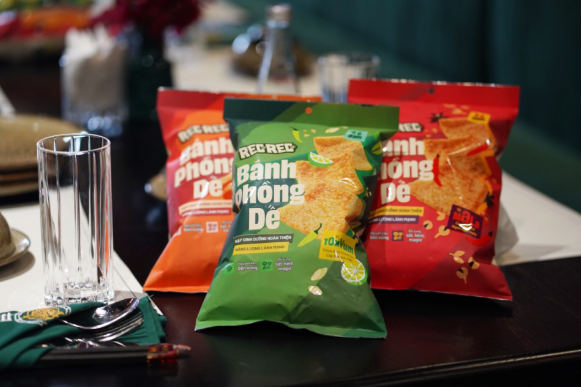Regulatory Approval Expected to Boost Local and Global Market Opportunities for Insect-Based Foods
Insect protein producers are buzzing with excitement as Singapore prepares to release its regulatory framework for the human consumption of insects. The long-awaited approval is anticipated to be finalized in July, providing a significant opportunity for companies to tap into Singapore’s affluent market. In particular, the country’s reputation for stringent food safety standards is expected to give insect-based food brands a competitive edge, potentially opening doors to global markets as well.
CricketOne, a Vietnamese startup that produces cricket chips under its sister brand Rec Rec, has already seen strong interest from more than 30 Singapore-based companies. The company is preparing for an influx of demand as it positions itself for the upcoming regulatory shift. With the approval of insect-based food products for sale in Singapore, brands like CricketOne are eager to introduce their products to local consumers, capitalizing on the country’s growing interest in sustainable, alternative protein sources.
While some consumers remain hesitant about eating insects, manufacturers are optimistic that education and effective marketing will help change perceptions. They are working to inform consumers about the nutritional benefits of insect protein, which is rich in protein, fiber, and essential nutrients while having a significantly lower environmental impact than traditional animal proteins.
The introduction of insect-based foods in Singapore marks a turning point in the local food landscape, with companies looking to establish a foothold before the global demand for alternative proteins grows. The upcoming regulatory approval is seen as a key step toward legitimizing insects as a viable food source, and many are hopeful it will boost consumer acceptance in the region.
For Singapore’s small and medium enterprises (SMEs) working with insect-based proteins, the anticipated regulatory nod is not just a local opportunity but a gateway to international markets. Given Singapore’s reputation for high food safety standards, these SMEs believe they can use the country’s market as a springboard to expand into other regions, where there is growing interest in sustainable food production.
As the approval date approaches, companies are preparing to scale their operations and meet the demand for insect-based food products. This shift towards more sustainable food options aligns with global trends toward reducing the environmental impact of food production, and Singapore’s embrace of these alternative proteins positions it as a leader in the future of food innovation.








